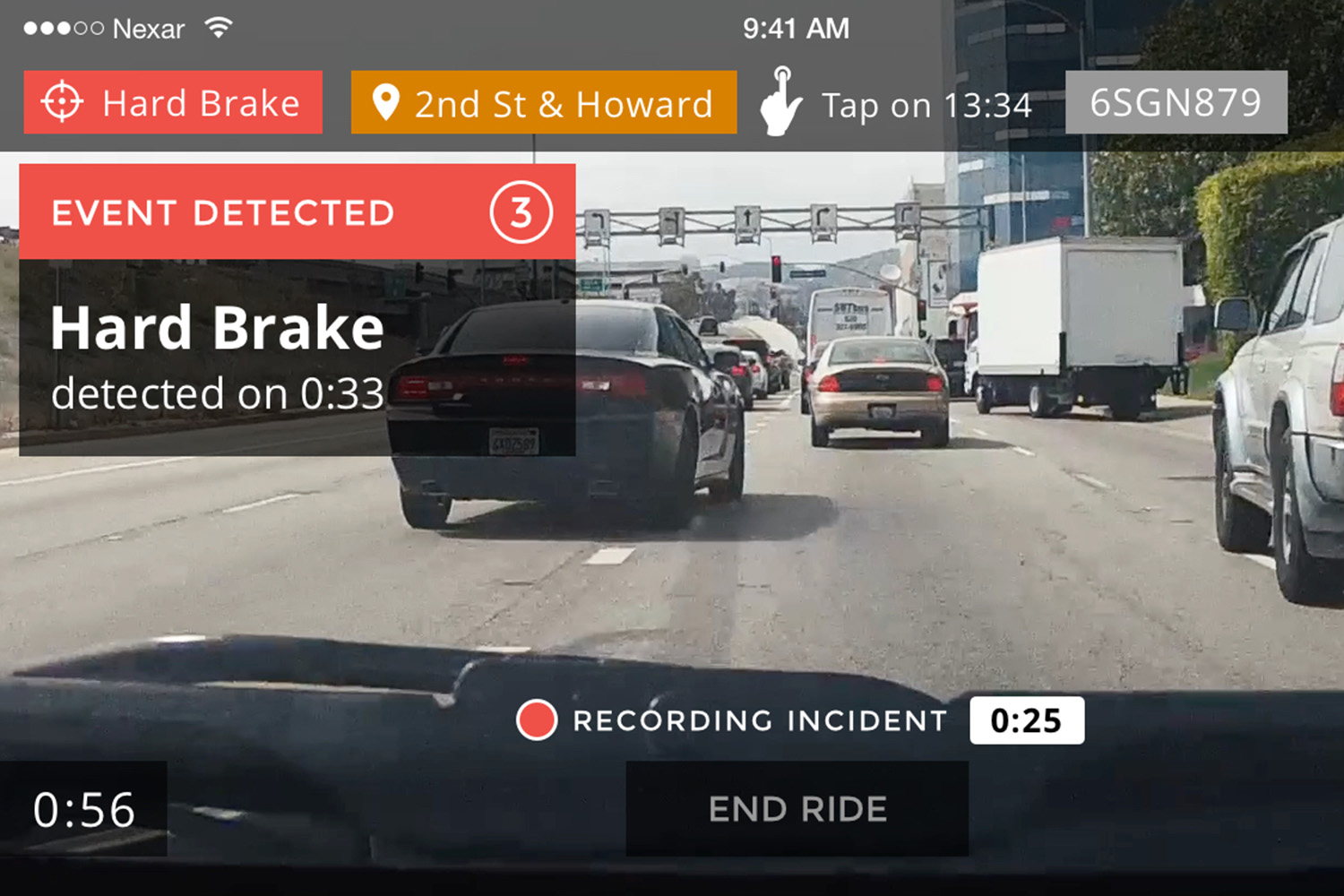Nexar uses your smartphone camera as a dashcam, to capture the road around you and feed that footage to AI algorithms and a machine vision system. The AI system analyzes and crowdsources this data – including license plate numbers, location, velocity, and trajectory – via a vehicle-to-vehicle network to predict and prevent future incidents.
See that SUV tailgating up ahead of you? So does Nexar. The app records the license plate and the SUV’s sporadic movements, and transfers this information to the cloud, where machine vision analyzes the data to calculate a driving score for that vehicle. Later this year, they plan to implement a feature that casts a warning to other Nexar users that the SUV approaches. The idea is to “effectively extend your line of sight, and warn you about dangerous cars and situation well in advance,” Shir explained.
Since Nexar launched its beta launched nine months ago, the app has already traveled five million miles, profiled seven million vehicles, recorded 400,000 hours of driving, analyzed 300,000 road events, and captured video in some 2,000 cities around the world. Over 2,000 red light runners have been recorded in the Bay Area alone.
If the proliferation of dashcams has taught us anything, it’s that car crashes are just one kind of “road event” worth recording. Nexar is no exception. Over the past few months, Nexar users have captured a building fire in Tel Aviv,m and cow-caused traffic jams in India. Still, the startup’s main aim is to make driving safer.
Shir has no patience for dangerous drivers and takes the position that privacy is secondary – on the streets at least. “Our position is very simple,” he said. “When you’re driving on a public road a heavy machine that can kill people nearby, those people around you have the right to know if you’re a dangerous driver.”
“On the other hand,” he continued, “we do not care and have no interest in knowing where a vehicle is coming [from], where it is going, or even if it’s you driving or your wife. We think this line draws the right balance between public safety and people’s right for privacy.”
Nexar has plans to expand over the next few months, on the heels of recent investments of $10.5 million. They’ll begin by developing vehicle-to-vehicle networks in San Fransisco, New York, and Tel Aviv to help connect drivers, calculate vehicles’ driving scores, and prevent road incidents. So if you’re rolling around those cities, be aware – you’re being recorded.



